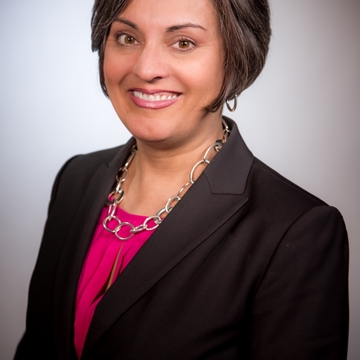College of Population Health to Transform into School of Public Health

Latinas Who Lead
Lisa Cacari Stone Brings a Passion for Mentorship to UNM College of Population Health
Growing up in rural Illinois, Lisa Cacari Stone was surrounded by her mother's Purepecha relatives from the Mexican state of Michoacan.
"I grew up in a little ethnic enclave," she remembers. "The Catholic church was across the street and the Dominican nuns and the priests lived down the block. It truly was a village. Education was really, really important."
Cacari Stone and her siblings were the first in her extended family to go to college. She eventually earned her PhD in social and health policy at Brandeis University.
Now, as an associate professor in The University of New Mexico College of Population Health and director of UNM's Transdisciplinary Research, Equity and Engagement (TREE) Center for Advancing Behavioral Health, she mentors other faculty and students who share similar experiences and aspire to one day becoming leaders in community, academic and policy settings.
"The leadership trajectory is not a straight roadmap - it's more like a labyrinth," she says. "You have to stay focused so you don't get lost in it. At one point, all the openings of the labyrinth will line up, but you have to pay attention so you can pass through. Latina leadership is learning how to navigate that labyrinth, and always keeping an eye open for those openings."
Cacari Stone's own educational journey first took her to Northern Illinois University, where she earned her undergraduate degree and a master's in social welfare and marriage and family therapy. She practiced in Chicago and surrounding suburbs, and worked for Viva Family Services with Children's Home & Aid social services system. "I was overseeing a team of case managers, mostly working with Latina women," she says.
She moved to New Mexico in 1989, taking a post at Vistas del Sol Mental Health Center in Española. She brought with her an interest in traditional modes of healing, having studied with a curandera for 10 years.
"That is something that has been almost invisible in our health care system.," she says. "We have to unpack those nuances and also bring it into our work today and look at it as an asset for healing, not a stigma or detriment to the community."
Cacari Stone went on to work as mental health director for the New Mexico Department of Health. "I realized a lot of the contractors that we were hiring that worked in public health or behavioral health were from out of state," she says. "I started thinking, 'Boy, we could have health system impact if we had people with doctorates from New Mexico.'"
That led to her social policy doctoral work at Brandeis, followed by postdoctoral studies at Harvard University and a policy fellowship in the office of Sen. Ted Kennedy. Cacari Stone first came to UNM courtesy of the Robert Wood Johnson Foundation Center for Health Policy, which initially funded a faculty position in the master of public health (MPH) program in the UNM Department of Family & Community Medicine.
The MPH faculty were transitioned into the College of Population Health when it was created in 2016. "Population health sciences as a field is more transdisciplinary," she says. "The vision is that it be integrative of both medicine and allied health fields, with more socio-epidemiological integration with the social sciences.."
Now, with the TREE Center (funded through the National Institute on Minority Health and Health Disparities), Cacari Stone and her colleagues from across the UNM campus are preparing the next generation of scholars of color to devise multi-level interventions that promote behavioral health equity with diverse and underserved communities.
"My grandmother Maria had to quit first grade to go to work so her brothers could stay in school," Cacari Stone says. "That's what keeps us Latinas here - to see the differences we can make in advancing the next generation and helping others to reach their dreams despite structural inequities."